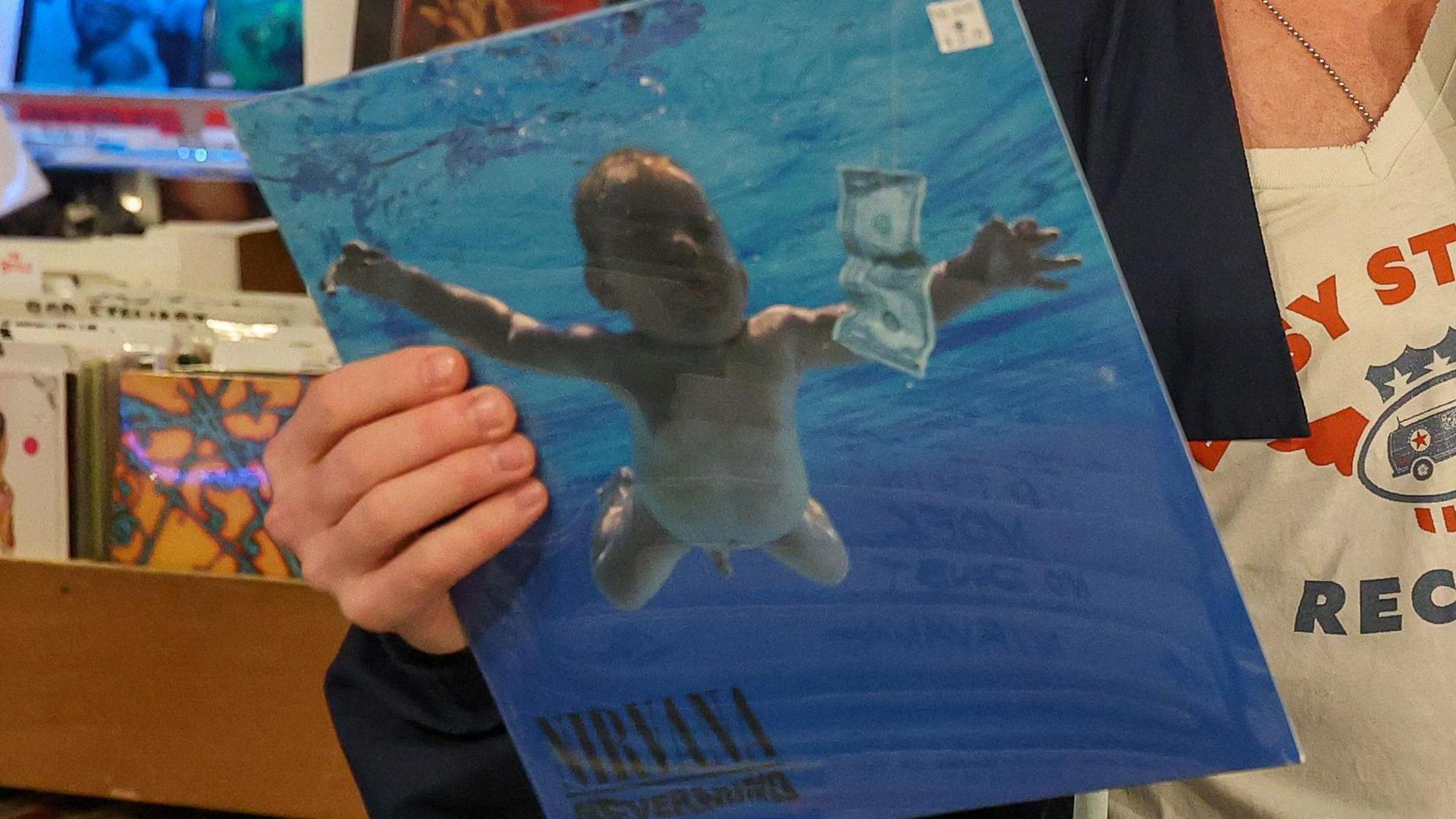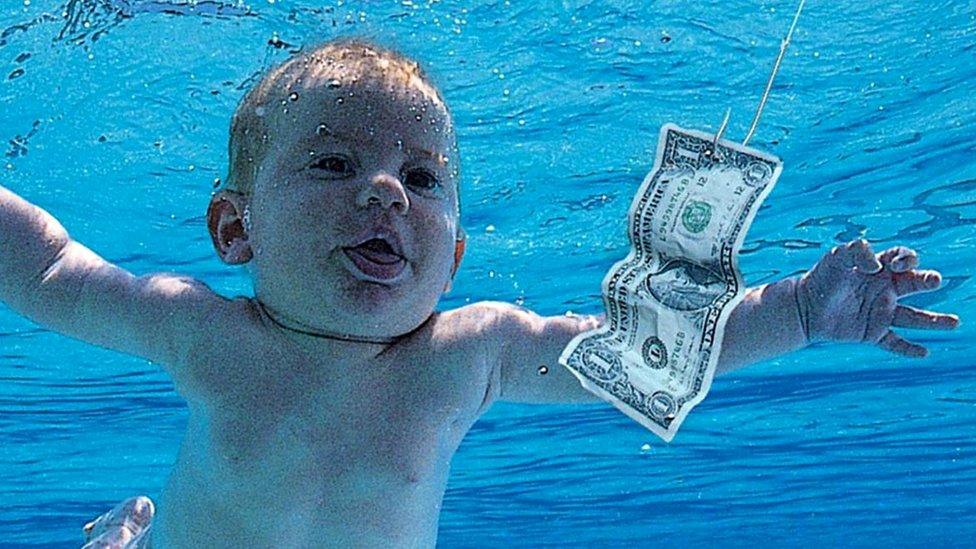Nirvana baby loses legal case over Nevermind album

Nevermind by Nirvana, pictured in 1991, was ranked sixth on Rolling Stone's 2023 list of the greatest albums of all time
- Published
The man who was photographed as a baby on the cover of Nirvana's classic album Nevermind has failed in his attempts to sue the band for distributing child pornography.
A four-month-old Spencer Elden was pictured swimming naked underwater on the 1991 LP's famous cover.
He sued the rock band and photographer Kirk Weddle, but a judge has ruled that "neither the pose, focal point, setting, nor overall context suggest the album cover features sexually explicit conduct".
A lawyer for Nirvana said: "We are delighted the court has ended this meritless case and freed our creative clients of the stigma of false allegations."

A $1 note on a fishing line was added to the photo of baby Spencer Elden swimming underwater for the album cover
Mr Elden originally filed a lawsuit in 2021, arguing that his identity and name were "forever tied to the commercial sexual exploitation he experienced as a minor which has been distributed and sold worldwide".
US District Judge Fernando Olguin dismissed it in 2022 because Mr Elden submitted it after the 10-year limit for filing a civil case.
An appeals court overturned that decision, allowing Mr Elden to refile the case.
However, Judge Olguin has now ruled that, beyond the fact Mr Elden was naked, nothing came "close to bringing the image within the ambit of the child pornography statute".
He likened the image to a family photo of a child bathing, and said it is "plainly insufficient to support a finding" of child pornography.
"Nudity must be coupled with other circumstances that make the visual depiction lascivious or sexually provocative," Judge Olguin wrote, quoting from an earlier ruling.
The judge also cited factors including the presence of Mr Elden's parents at the photo shoot, the fact the photographer was a friend, and the fact he had previously "embraced and financially benefitted from being featured on the album cover".
Mr Elden's legal team told Rolling Stone, external they "respectfully disagree" with the decision and plan to appeal.
"As long as the entertainment industry prioritizes profits over childhood privacy, consent, and dignity, we will continue our pursuit for awareness and accountability," said James R Marsh of the Marsh Law Firm.
Related topics
- Published4 September 2022

- Published25 August 2021
